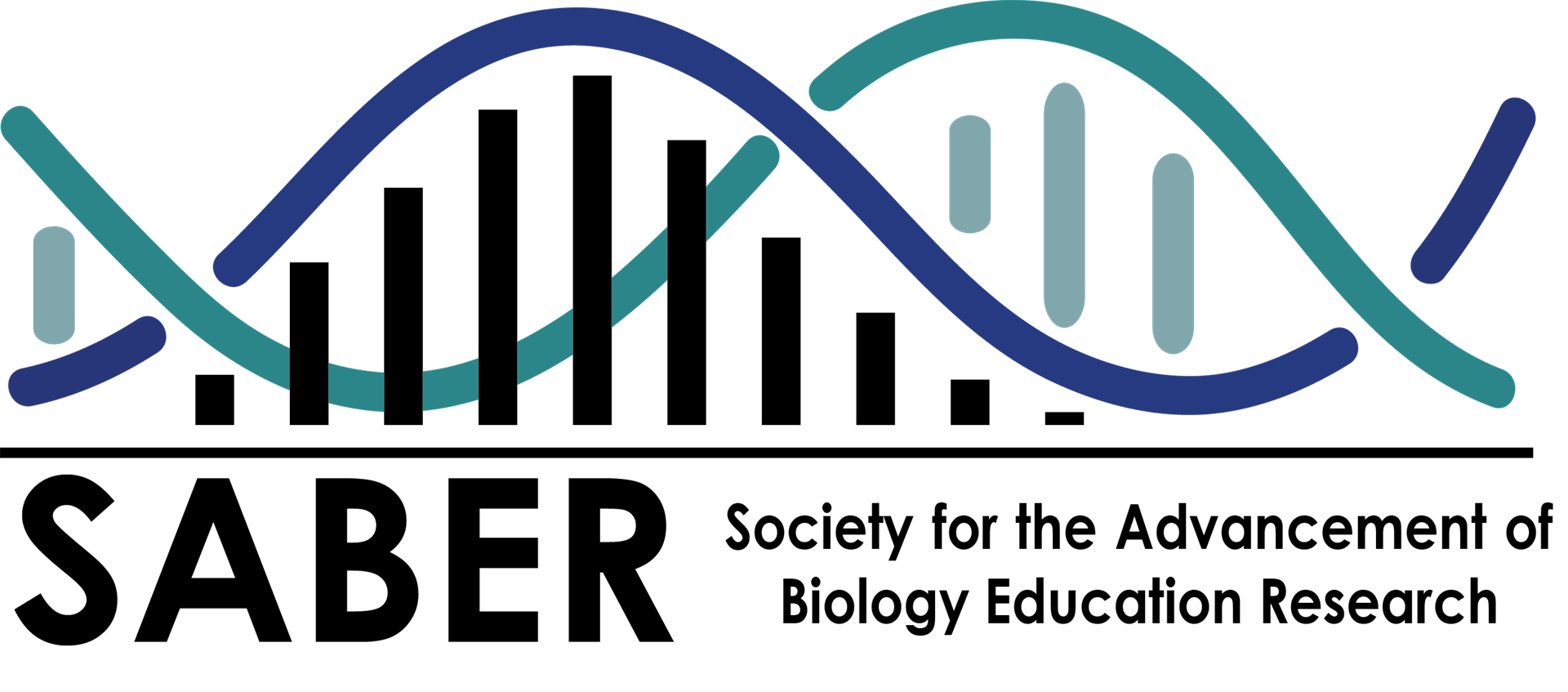
Professional Society Takes Bold Steps Towards Diversity and Inclusion in Biology Education Research
March 8, 2024 - The Society for the Advancement in Biology Education Research (SABER), the leading international society focused on undergraduate biology education research, is proud to announce a comprehensive initiative aimed at addressing issues of diversity, equity, and inclusion within its organization through an NSF BIO-LEAPS award.
Professional societies play a vital role in facilitating the exchange of research findings and fostering networking opportunities in various fields. However, SABER and many such organizations, have recognized the need for greater representation and inclusion of members from historically marginalized and excluded demographic groups in STEM education and careers. For purposes of this project, the definition of marginalized/underrepresented for participant eligibility include the following:
-
first-generation college students,
-
academic personnel who have faced challenging social, economic, educational, cultural, or other life circumstances,
-
academic personnel researchers who demonstrate a commitment to bringing diverse people together,
-
academic personnel who demonstrate a commitment to working with underrepresented or disadvantaged populations,
-
academic personnel who demonstrate achievement and determination in the face of personal challenges.
-
academic personnel who attend and/or who are employed at historically black colleges (HBCUs) and other minority serving institutions (MSIs)
Since its inception, SABER has acknowledged and actively worked to confront issues of diversity and representation at all levels of its organizational structure, including key leadership positions. Despite significant changes, the society recognizes the need for sustained efforts to institute lasting change in promoting equity and inclusion.
The newly launched project aims to enact sustainable change by incorporating wide-ranging perspectives, life experiences, and voices to fundamentally shift the culture of the organization. The goals of the project include:
-
Broadly and systematically advertising and recruiting for SABER to expand its reach to organizations, institutions, and individuals currently unaware of its existence.
-
Offering travel support for members of underrepresented groups in biology, including those from historically black colleges and universities and other minority-serving institutions, to attend the national meeting.
-
Providing mentorship related to inclusion to individuals in leadership positions within SABER.
-
Developing networking, mentoring, and leadership opportunities to sustain the involvement of diverse members within the organization.
By increasing the number and incorporating the perspectives of underrepresented scientists within SABER, the organization aims to:
-
Create welcoming spaces that foster a sense of belonging and professional growth for diverse individuals.
-
Establish a supportive environment by empowering environmental stewards within SABER leadership and offering them travel support and mentoring activities.
-
Introduce structural changes that will impact the culture and climate of SABER, creating pathways for diverse individuals to contribute to the society's leadership.
Furthermore, as SABER members are also affiliated with other subfields of biology, these efforts will have a ripple effect, directly impacting other professional societies in their journey towards inclusivity.
"We are committed to creating an inclusive environment within SABER that reflects the diverse voices and perspectives within the biology education research community," said Miriam Segura, President-Elect of SABER, and Co-PI of the NSF BIO-LEAPS initiative. "Through this project, we aim to not only diversify our organization but also serve as a catalyst for broader systemic changes across the field of biology education research."
Project Team Members include Dr. Samiksha Raut, Principal Investigator (PI), University of Alabama at Birmingham; Dr. Sara Brownell, Co-PI, Arizona State University; Dr. Bryan Dewsbury, Co-PI, Florida International University; Dr. Marcos García-Ojeda, Co-PI, Past-President, SABER, University of California, Merced; Dr. Miriam Segura, Co-PI, President-Elect, SABER, University of North Georgia.
For more information about SABER and its diversity and inclusion initiatives, please visit: https://saberbio.org/
About SABER
The Society for the Advancement in Biology Education Research (SABER) is the premier international society dedicated to advancing undergraduate biology education research. SABER seeks to foster collaboration, innovation, and excellence in biology education research to enhance student learning outcomes.
Media Contact
Emily Grunspan
Managing Director
Society for the Advancement of Biology Education Research
emily@saberbio.org
www.saberbio.org
-END-
